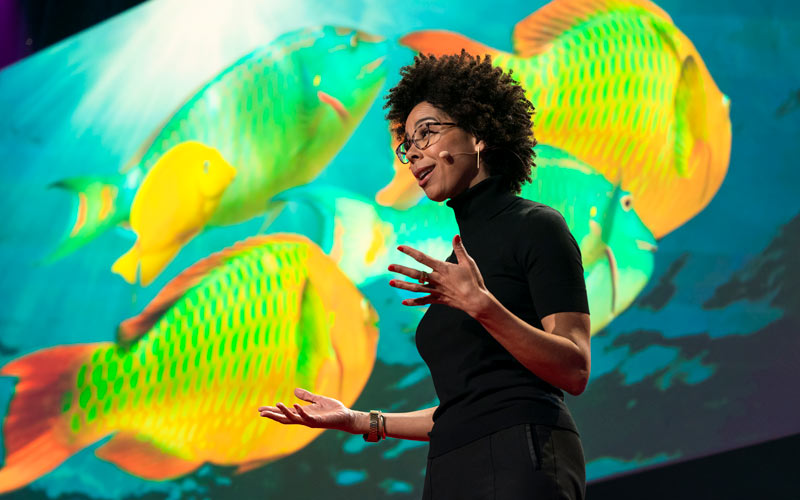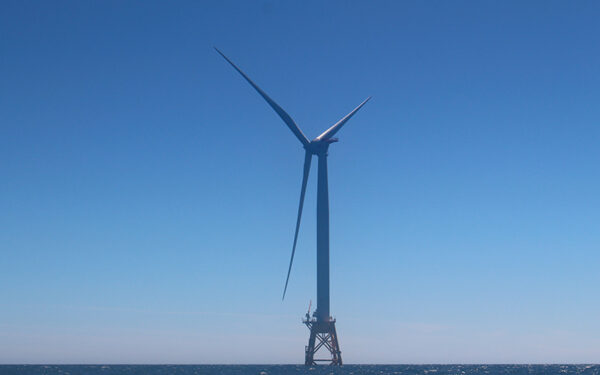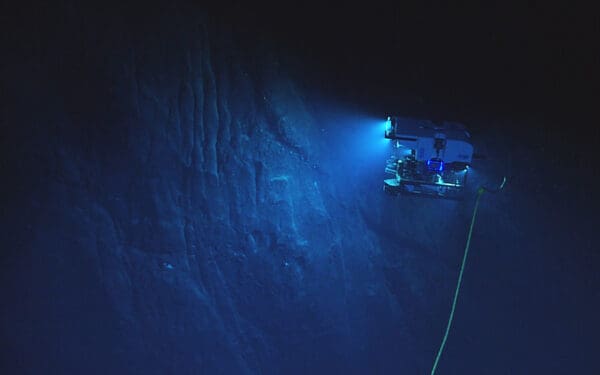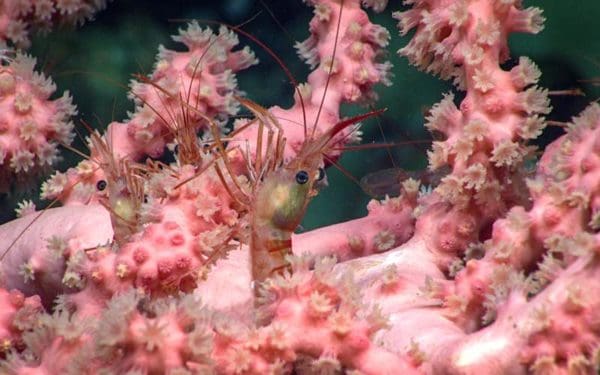
Dr. Ayana John talks about her mission to empower coastal communities and shares her hopes for the future of the ocean conservation movement. Photo: Ryan Lash
Dr. Ayana Elizabeth Johnson is a marine biologist, policy expert, writer, and conservation strategist. Her work focuses on leveraging science, policy, and communication to find climate solutions while building community.
She is a co-founder of the nonprofit think tank Urban Ocean Lab, co-founder of the climate initiative The All We Can Save Project, and co-host of the podcast How to Save a Planet.
Earlier this year, we talked with Dr. Johnson and learned about her journey as an ocean advocate, her mission to empower coastal communities, and her hopes for the future of ocean conservation efforts.
Here are some of the highlights from our conversation.
This interview has been edited for clarity.
How do you see ocean conservation, climate, and social equity intersecting?
I wrote a piece – What I Know About the Ocean: We Need Ocean Justice – putting forward some of my thoughts on those intersections.
For me, it has always been obvious that [the ocean, climate, and social equity] are intertwined. [In a way], it’s impossible not to see these connections, particularly when it comes to justice.
But the way we talk about justice focuses heavily on [fishing] permits, access to the coast, pollution, jobs, and other legal and economic issues. We often forget to talk about how these issues relate to cultures and people.
What role does culture have in ocean justice efforts?
Something that often gets lost in conversation about ocean justice is how deeply ocean conservation is a matter of cultural preservation. And, to me, that is also a matter of justice because we are talking about preserving a way of life and traditions.
People’s lives and cultures are intertwined with natural resources. And so, we need a deeper level of analysis and larger solutions. It is not purely an economic or financial issue; it is who we are. That’s why I feel lucky to be the daughter of a Jamaican from whom I absorbed that appreciation.
And within the U.S. context, as we start seeing some important changes in the ocean, we have a chance to make the right policy choices, and we have a chance to get them right. In many areas, we are basically starting to create policy from scratch. That’s exciting because we have the opportunity to also take culture into account.
What’s your advice for how we can best advance diversity, equity, and inclusion work in the ocean conservation movement?
Step one is asking this question, and repeatedly doing so. But I will offer the caveat that, although I am a black person in ocean conservation, I’m not an expert on diversity and it’s important to make that distinction, right?
Some people are incredible strategists and visionaries for answering these questions. I just happen to be black and in this field. That said, of course, I have thoughts.
I see a big generational shift happening, and it is important to invest in that next generation. At the institutional level, an easy step to advance these values is to pay your interns, always pay your interns. No one can afford to get into this field if it has to be as a volunteer to work.
Another way to increase diversity is to support already existing initiatives, like the Ray Conservation Fellows program – through which I marginally have mentored some young people. These programs are great for helping to place people in ocean conservation and helping them have a community of people with whom they can navigate the field together.
And the most concrete tip for institutions is being super cognizant about organizational culture. We need to take into account the ridiculous inequities in terms of access to education and skill-building. We need to pay attention to what we value and think about what new skills other people can bring.
What other piece of advice would you give to ocean advocates and the environmental movement?
The role of joy in this work often comes to my mind. I think the environmental movement, in general, has done a very bad job of making the work beautiful. So, one of the principles for my policy think tank Urban Ocean Lab is that it’s got to look good.
We need to make our work as appealing as possible. For example, by including poetry, art, and audio in the All We Can Save anthology, and by calling in every favor imaginable to cast the audiobook, I was saying: “By any means necessary, I want you to listen to this climate information.”
So, I think that to the extent we can bring beauty and joy to this work, we will be just so much more successful. I find that there can be elegance and beauty in law and policy. Not to say that we all need to become artists, but I think that collaborating with artists and incorporating beauty and joy can be really powerful strategies.
A Deeper Dive
Learn more about Dr. Johnson’s work by visiting her website or following her on Twitter @ayanaeliza.




